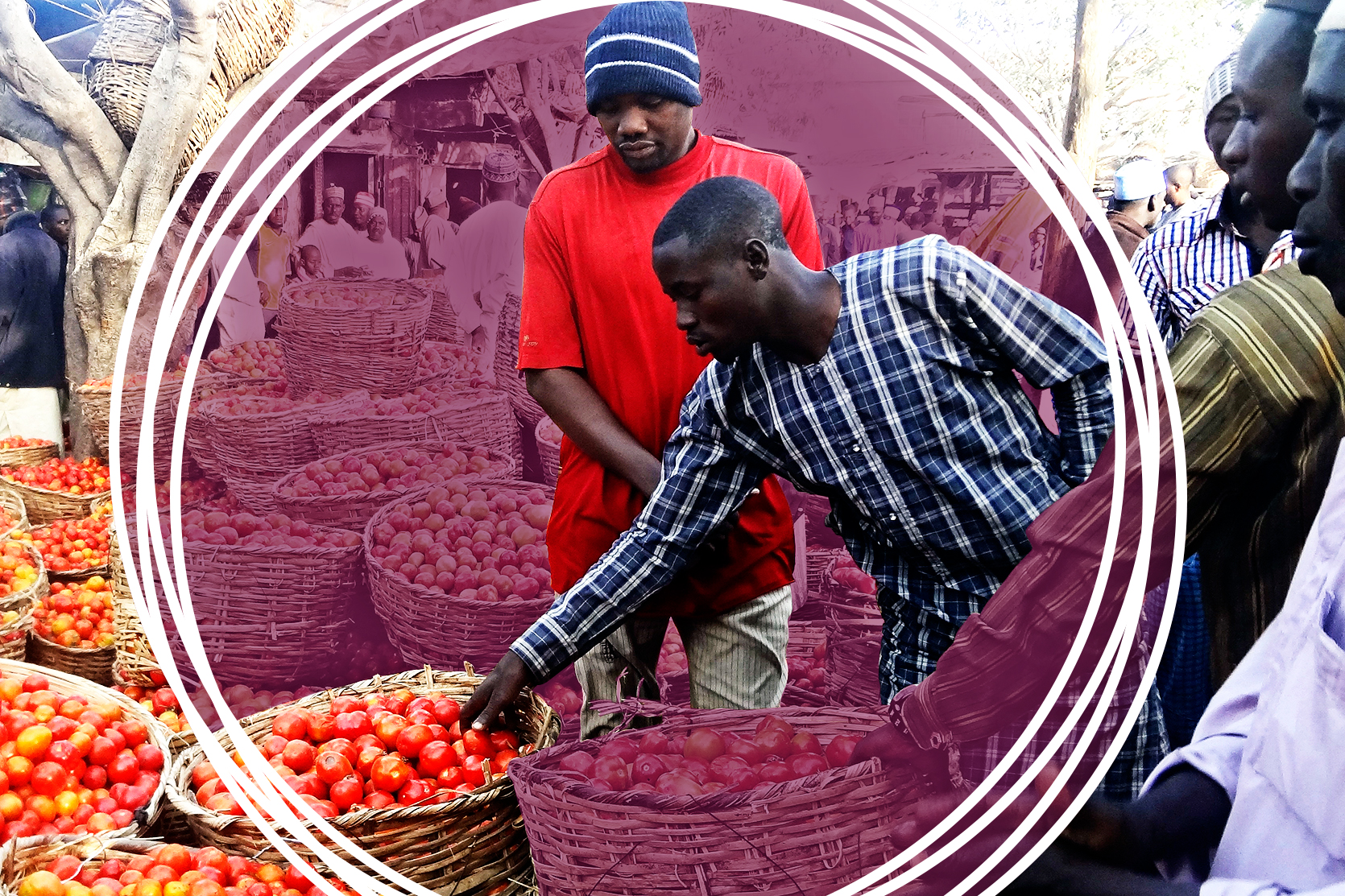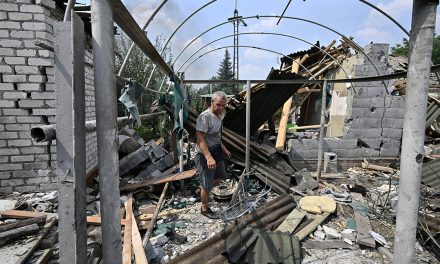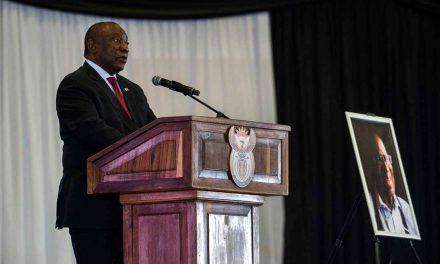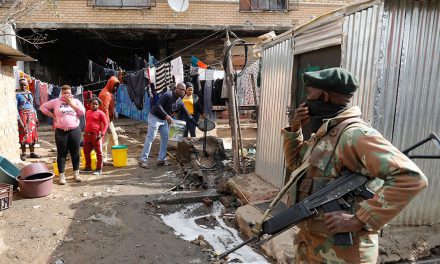
Nella, 34, a single mother, was an air hostess in Nigeria’s private jet industry. When the Covid-19 pandemic hit, she had to agree to a three-month reduced salary. Ahead of a speculated resumption of flights on 21 June on specific routes in Nigeria, her company organised a training exercise, ostensibly to prepare staff to resume work. But at the end of the week, she was handed a lay-off letter.
“I wonder why they made us go through the training if they knew they would be sacking us right after?” she remarked to Africa in Fact. With no back-up plans, Nella is still consumed by shock and disappointment and hasn’t quite figured out what to do. “I don’t even know if I will be able to get back into the industry anytime soon.”
Last year (2019), Senator Chris Ngige, Nigeria’s Minister of Labour and Employment projected an unemployment rate of 33.5% (39.4 million people) by 2020. This is against 23.1% (20.9m people) at the end of 2018. Approximately 6% of this 2018 figure covered youth unemployment, which rose to almost 20% by the end of 2019.
Last year, Senator Chris Ngige, Nigeria’s Minister of Labour and Employment projected an unemployment rate of 33.5% (39.4 million people) by 2020.
Meanwhile, a recent household survey by Nigeria’s National Bureau of Statistics categorised more than 40% of the country’s households as poor. The survey projected that the economy would shrink by between 4.4% and 8.91%, depending on the lockdown period, the effectiveness of the government’s economic plans and the amount of stimulus spending.
Globally, the UN Secretary-General Antonio Guterres’ ‘Policy Brief on the World of Work and COVID-19’ predicts massive job losses in the second quarter of 2020 – as many as 305 million full-time jobs. The study, based on data and analysis from the International Labour Organization (ILO), warns that many who have lost their jobs and livelihoods in recent months will be unable to re-enter labour markets any time soon. Some 1.25 billion workers, or 38% of the global workforce, are employed in high-risk sectors.
A recent household survey by Nigeria’s National Bureau of Statistics categorised more than 40% of the country’s households as poor.
People in developing countries and fragile contexts face the most dramatic risks, partly because they have less economic resilience, according to Guterres. “They are disproportionately represented in high-risk sectors and are often amongst the first to lose employment and the last to return.”
Nella, the air hostess, is – or was – in one of those sectors. Others are facing similar nasty surprises.
On 16 June, after a period in lockdown, a fleet officer in the transport division of Dangote Cement Plc, one of Nigeria’s biggest cement companies, was summoned to resume work with other colleagues at the company’s Obajana plant in Kogi State, in Nigeria’s middle belt.
The day before, the fleet officer had heard rumours that people might be laid off. The fleet officer and colleagues were asked to sign a register. It turned out to be a register of everyone who was to be laid off. Those who were on it would be paid one month’s salary in lieu of notice. “I asked why I was being sacked, but no explanation was given,” said the fleet officer, who asked to remain anonymous for fear of not being paid their severance.
“I asked why I was being sacked, but no explanation was given,” said the fleet officer, who asked to remain anonymous for fear of not being paid their severance.
In the early days of the pandemic in Nigeria, only “essential staff” were allowed to carry on working. These included health workers, journalists and people in emergency and frontline services. In line with that, some staff at Dangote were told to take compulsory leave for two weeks but were then recalled after only five days. While Covid-19 infections spread and cases rose, it was business as usual.
Trucks in escorted convoys headed to troubled destinations around the country, such as Sokoto (north-west), and Madagali, Yola and Maiduguri (north-east), all hot beds for the Boko Haram insurgency. Trucking staff soon found themselves getting arrested for violating movement restrictions, and the company would bail them for a minimum of ₦10, 000, according to the fleet officer.
The fleet officer passed a work appraisal only this January and had been expecting a promotion to manager. People in all of the company’s departments had been similarly affected, the person said. At the time of writing, no fewer than 3,000 staff had been laid off from the company during the COVID-19 pandemic.
Trucks in escorted convoys headed to troubled destinations around the country, such as Sokoto (north-west), and Madagali, Yola and Maiduguri (north-east), all hot beds for the Boko Haram insurgency.
The job crisis in Nigeria became even more worrisome when Access Bank announced plans to cut staff salaries to avoid job losses. Earlier this year, a spokesperson told journalists that the bank would not downsize, but instead would reduce salaries to retain workers. However, in a video now uploaded to YouTube, on 1 May, the bank’s Group Managing Director, Herbert Wigwe, told members of staff, in a town hall meeting via video conferencing, that it was “a fact that we do not need the same complements of staff to take us to where we are going”.
The pronouncement seemed to suggest that large-scale layoffs were at hand. The bank’s move was widely criticised – especially given that the bank, and Wigwe, are active members of the Coalition Against COVID-19, to which the bank made a ₦1 billion donation. Access Bank has denied that large-scale layoffs were planned.
The bank’s move was widely criticised – especially given that the bank, and Wigwe, are active members of the Coalition Against COVID-19, to which the bank made a ₦1 billion donation.
The Central Bank of Nigeria (CBN), the country’s regulator of banks, and Nigeria’s Bankers Committee waded in. To help minimise the negative impact of the Covid-19 pandemic on families and livelihoods, no bank in Nigeria would be allowed to retrench or lay-off any staff of any employees, full-time or part-time, CBN’s Director of Corporate Communications, Isaac Okoroafor, stated in May. Staff layoffs would require “the express approval of the Central Bank of Nigeria”.
The Nigerian government has announced a ₦2.3 trillion (about $5.9 billion) stimulus package aimed at “bouncing back,” or re-establishing economic sustainability. The package, produced by a presidential committee led by Nigeria’s Vice-President, Yemi Osinbajo, is expected to keep the economic contraction to -0.59%. The plan aims to prevent business collapse, create jobs “using labour-intensive methods”, create jobs by investing in infrastructure, promote local manufacturing and “extend protection to the very poor … through pro-poor spending.”
The Nigerian government has announced a ₦2.3 trillion (about $5.9 billion) stimulus package aimed at “bouncing back,” or re-establishing economic sustainability.
The package is a good start, said Tolu Olarewaju, a lecturer in economics at Staffordshire University, in an article on The Conversation. Nevertheless, it left “a lot to be desired”, as some of the “features of the plan [we]re very vague.” The broad objectives of the plan were “like the typical campaign promises of successive Nigerian governments”.
Olarewaju said the plan ignored fundamental problems that have plagued previous economic plans, including crucial sectors such as power and education. He called for more investment in the power sector to boost the storage and processing of agricultural produce and to support the manufacturing sector, adding that education needed to address entrepreneurship and practical skills. He also queried how the social safety net would be strengthened. The plan did not mention support for the health sector, he argued. Finally, Olarewaju questioned whether it would be implemented.
Two factors – specific and measurable objectives and creating an enabling environment for businesses to thrive – would be better ways to stimulate the Nigerian economy at this time, he concluded.
The only way to prevent pay cuts and job losses is for government to provide financial support to businesses, an Abuja-based human resource specialist, Hilda Abu, told Africa in Fact. Some countries were supporting businesses by paying a percentage of employees’ salaries, but it was not clear that the Nigerian government could afford this approach. She also questioned the government’s data. “Without reliable and verifiable data, no planning can be done,” she said. “[Good] data is not something Nigeria can boast of.”
The lockdown and travel restrictions had caused many businesses with no access to financing to go under. Some ripple effects of this include depression and other mental health issues. “These are not currently being prioritised,” she said.
According to the Nigeria Employers’ Consultative Association (NECA), government must urgently initiate specific and direct business sustainability schemes to save organised businesses from the debilitating effect of the Covid-19 pandemic and to avert mass layoffs of workers. Such measures were already being taken in other countries. NECA urged the government to review its stimulus package, arguing that the CBN’s intervention in the banking sector should be replicated in other sectors.
Meanwhile, people like the fleet officer and Nella the air hostess are left to face their life-changing dilemmas on their own.
We’d love to hear from you! Join The Wicked Conversation by leaving your comments below, or send your letter to the editor to richard@gga.org.












